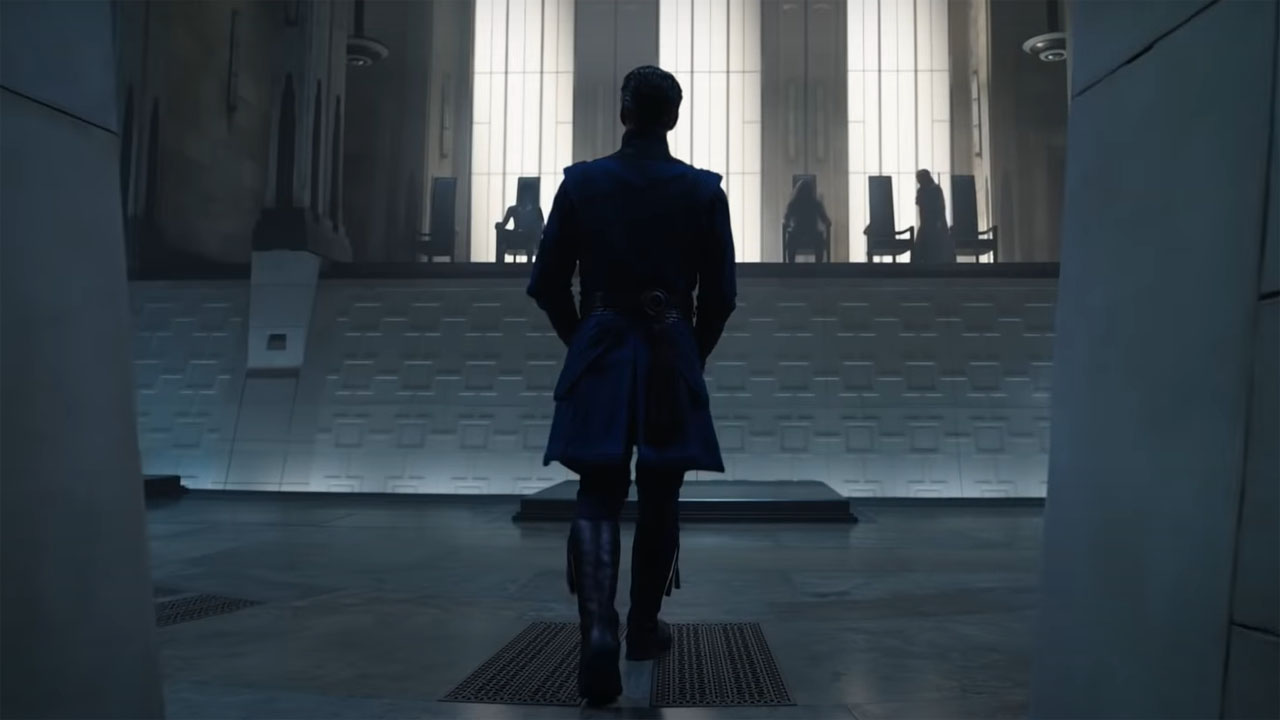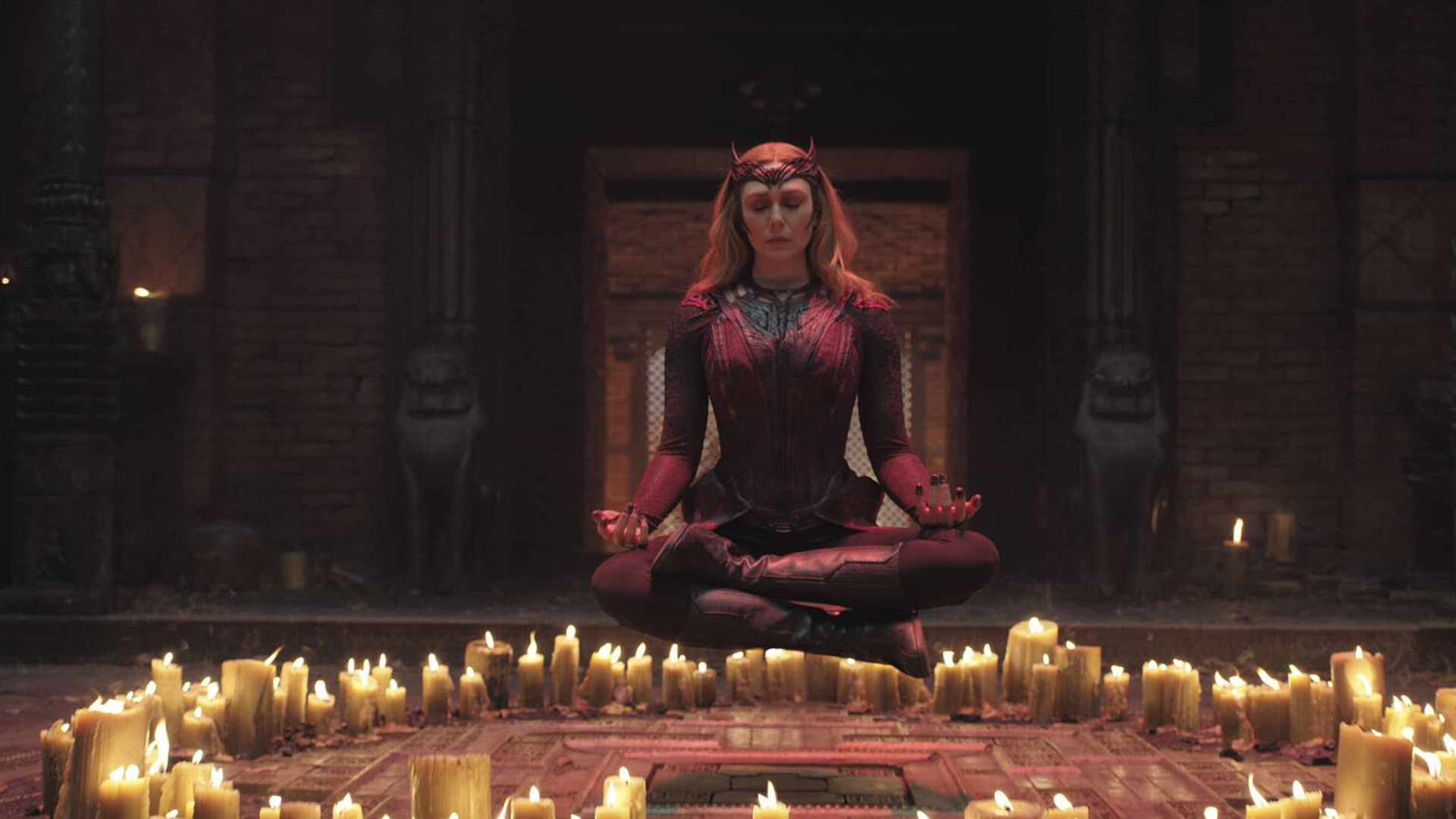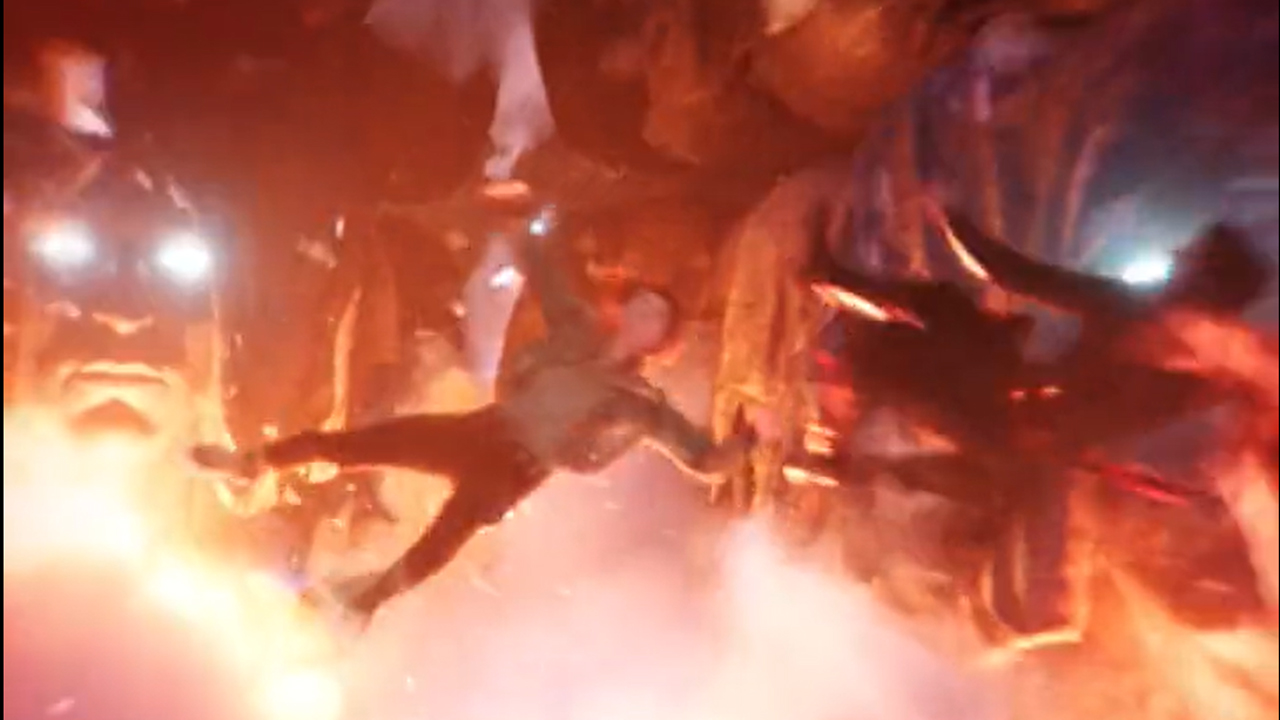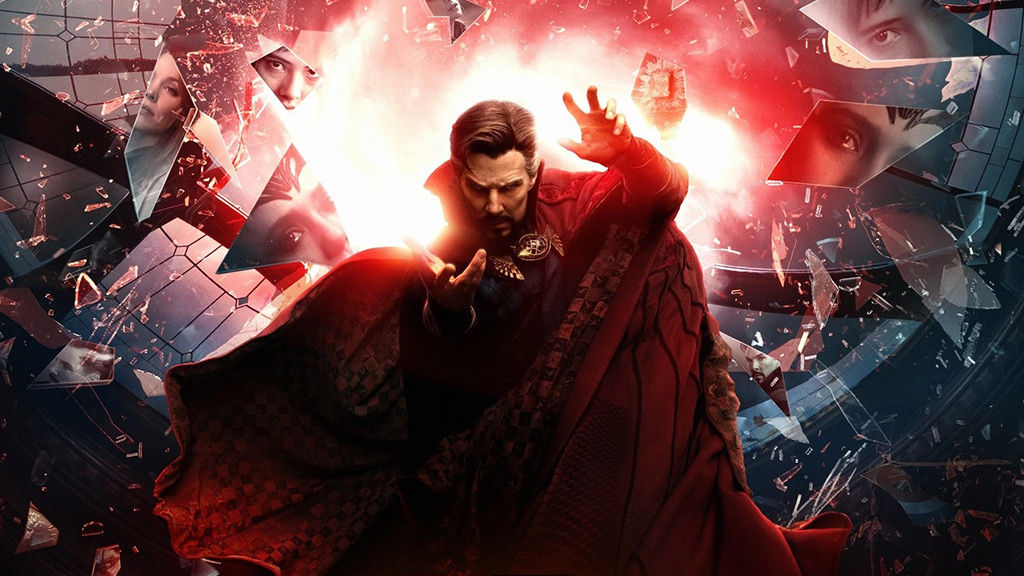Full spoilers for Doctor Strange 2 follow. You have been warned.
Doctor Strange in the Multiverse of Madness has finally landed in theaters – and there's plenty to enjoy about the latest Marvel movie. With multiple crowd pleasing cameos, horror-infused sequences, intriguing themes, and the usual lashing of action and humor, it's a stylish, but solid Marvel Cinematic Universe (MCU) offering that casual and diehard Marvel fans will be satisfied by.
That all said, it's not without its issues. The Marvel Phase 4 project's plot does feel somewhat stitched together and a little too fast paced, much of which you can likely trace back to the fact that the superhero film's script underwent numerous rewrites and six-week long reshoots as recently as November 2021.
It's unsurprising, then, that Doctor Strange 2 suffers from a slightly disjointed narrative and plot pacing problems. I wouldn't go as far as to say it's overly rushed, but it's certainly the victim – and not the beneficiary – of little story padding and a trimming of the fat, so to speak.
For some viewers, that'll be a good thing. Why drag a movie's story out when it's unwarranted? Isn't Doctor Strange 2 a good film because it's been stripped of plot threads that would ordinarily weigh it down?
Ironically, Doctor Strange in the Multiverse of Madness would have fared far better if it ignored the longstanding criticism of MCU films (and superhero flicks in general) and allowed itself a longer runtime. As it is, it's a good Marvel film, but it could have been more.

The runtime, which is a relatively skinny two hours and six minutes, could have easily been extended and that would have given the MCU film more time and more license to explore Stephen Strange's personal story arc.
Yes, enough time is devoted to the former Sorcerer Supreme – he's the star of the show, after all. But a more detailed character study of Doctor Strange, especially as much of the narrative is to devoted to him wrestling with the kind of person he is compared to his multiversal variants, would have made for a more emotionally impactful story.
As it is, Strange is aware of who he could have been if he'd made a different decision at any point in his MCU arc to date, but there's never a sense of him grappling with the choices he made. You know, apart from the regret he feels over not getting his 'happily ever after' ending with Christine Palmer.
It would have been interesting, for example, to see if he rued giving the Time Stone to Thanos in Avengers: Infinity War, or helping Peter Parker cast that spell to make everyone forget he was Spider-Man in No Way Home.
Sure, you can argue that he made the right calls – the events of and post-Endgame, plus No Way Home's climactic ending, show that he did. But, despite meeting variants of himself and other MCU characters, he remains steadfast that he made the correct decisions despite the multiversal consequences these two key actions have had. It would have made for intriguing viewing if Doctor Strange 2 had explored the ramifications of these decisions (and their impacts on him specifically) in more detail.

Wanda's arc feels similarly stunted by the movie's runtime. Positioned as the antagonist of the piece, it feels the Maximoff twin's character development in WandaVision was all for nothing. In the Disney Plus show, we see Wanda – aka the Scarlet Witch – comes to terms with her guilt and trauma over the death of Pietro Maximoff and Vision, as well as the fact that her twin sons Billy and Tommy aren't real entities in the MCU. It was a refreshing turn of pace for the troubled superhero, whose MCU arc has largely been built on the psychological wounds she's accumulated since her introduction in Avengers: Age of Ultron.
Most (if not all) of that character growth, though, is cast aside to position Wanda/Scarlet Witch as a grieving mother who's so laser-focused on being reunited with her children that she'll cause unwarranted destruction to achieve her goal. Yes, she's been consumed by the Darkhold so she's not thinking clearly. Okay, in the comics, Scarlet Witch is constantly grappling with her guilt and trauma, so it's reasonable to assume that her deep-rooted psychological scars (in the MCU) haven't gone away overnight. And sure, given Doctor Strange and his allies's own strengths and superpowers, this movie needed a villain as powerful as Scarlet Witch to outmuscle them.
However, with a longer runtime, Doctor Strange 2 could have delved deeper into the reasons behind Wanda's descent into, well, madness. She's a far more complex character than the one note individual she's made out to be in Marvel's last big screen offering. It's a pity, then, that Doctor Strange 2 doesn't examine the battle that rages inside her thoroughly.

There are other story beats that would have benefitted from a lengthier movie. America Chavez's arrival in the MCU feels more like a plot device to allow the film's various characters to more easily traverse the multiverse. Given her importance to proceedings, and the father-daughter style relationship she develops with Doctor Strange, an extra 20 minutes may have helped to inform her long-awaited MCU debut and added more context to her and Strange's burgeoning partnership.
Superb as the Illuninati's battle with Scarlet Witch is, a lengthier fight sequence showing how the group work together would have gone a treat, too. This is a superhero team that defeated their universe's version of Thanos with relative ease, by all accounts. They wouldn't have been able to do so without working in tandem to take the Mad Titan out, so it was slightly disappointing that they attacked Wanda individually rather than collectively. Oh, and if you're going to give the fans what they want and cast John Krasinski as Mr. Fantastic, at least let us see him use his powers, Marvel.
Given the film's 'Multiverse of Madness' title, I – and many other viewers, I'm sure – also would have liked to visit more universes more rigorously. Teasing other realities, such as an animated one, a paint-based dimension, and even the dinosaur realm that was hinted at in the trailers, is all well and good. If you put 'multiverse' in the title, though, I want to explore a few more for a couple of scenes at least, rather than simply bypass them in a blink and you'll miss it montage.

The above may make me sound like an entitled detractor of Doctor Strange in the Multiverse of Madness. In my view, it's still a good movie with a lot of satisfying moments for audiences to revel in, and there's enough set up (based on its ending and post-credits scenes) that tease the prospect of further and potentially bigger multiverse-led tales to come.
But there's a nagging feeling that it could have been a far better film if it was a bit longer. Some may disagree with that sentiment, particularly in the wake of increasingly lengthy superhero movies including The Batman and Avengers: Endgame. Shorter movies with tighter narratives (devoid of plot padding) make for better films, right?
Ordinarily, yes, but some movies need to have bigger runtimes if it aids their stories. Doctor Strange 2 is the shortest MCU movie in three years but, while that's music to the ears of some fans, it's not necessarily a good thing, what with the film's somewhat messy plot.
Director Sam Raimi previously revealed (per Collider) that Doctor Strange 2 originally ran for two hours and 40 minutes, and I can't help but wonder if this cut would have made for a more thorough and enjoyable film. In another universe, maybe there's a version of Doctor Strange in the Multiverse of Madness that retained its initial runtime and is all the better for it. Without access to Chavez's multiverse portal powers, though, I guess we'll never know.
Doctor Strange in the Multiverse of Madness is out now in theaters worldwide.
No comments:
Post a Comment